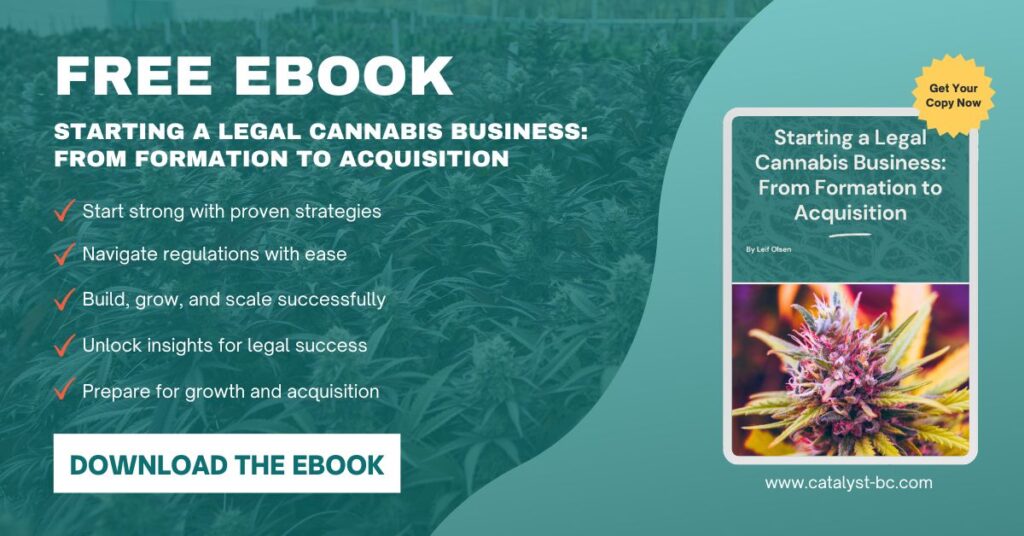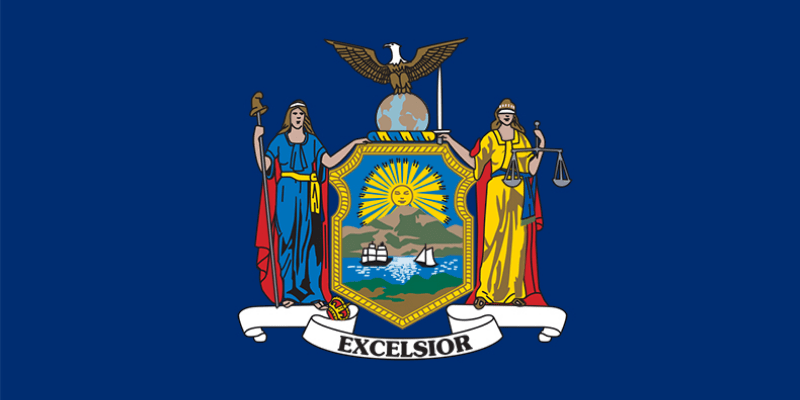Estimated reading time: 5 minutes
Table of contents
Secure Your New York Cannabis
Cannabis legalization continues to sweep across the East Coast as New York State lawmakers reached a deal with Governor Andrew Cuomo on Wednesday, March 31, 2021, to legalize recreational cannabis for adults 21 years and older. New York will join Massachusetts and New Jersey as east-coast states with full legalization measures in place. Now, an estimated 56 million residents in the northeast are free from cannabis prohibition. Senate Bill S854A and A1248 will permit recreational cannabis sales to adults over the age of 21, set up a licensing process for the delivery of cannabis products to customers, and would also permit “lounges” or consumption sites. Under this Bill, adult residents of New York will be allowed to possess up to 3 ounces of cannabis or 24 grams of concentrate and cultivate up to three mature and three immature plants for personal consumption. Although adults can now legally possess and consume cannabis, retail dispensaries are not expected to open until 2022, at the earliest. First, the state must establish its new regulatory agency, the Office of Cannabis Management, and its licensing structure. Based on the historical progress of other states, this is generally a 12-18 month process. The Office of Cannabis Management will be composed of five members appointed by the governor, one selected by the State Assembly, and another by the Senate.
As a way of righting wrongs, the legislation also calls for the automatic expungement of records for people with previous cannabis convictions for activities no longer criminalized. Persons previously convicted of possessing three ounces or less will be subject to expungement and re-sentencing. “Passage of this bill will mean not just legalizing marijuana, but also investing in education and our communities, and it brings to an end decades of targeting people of color under state and federal drug laws. This legal industry will create jobs across our state, including for those who have had their lives upended by years of unjust drug laws,” said Assembly Speaker Carl Heastie.
In addition to legalizing recreational cannabis for adult use, the new law will further develop the existing medical cannabis program by expanding the list of qualifying medical conditions and the permission of new product options. For example, flower products, which were previously not allowed under New York’s medical program, may be permitted under the new expansion. This marks a monumental change for the program as flower and pre-roll sales account for nearly 70% of cannabis sales across the US as raw-flower is the preferred method of consumption.
Recreational cannabis sales will be subject to a 13 percent total sales tax in New York, combining a state tax of 9 percent and a local tax of 4 percent. Of the 9 percent state sales tax, 40 percent would go to communities of color most harmed by the war on drugs, 40 percent would go to education, and the remainder would go to anti-addiction efforts. Additionally, local governments and municipalities will have the option to opt out of retail sales. But should they? According to the New York State Governors office, recreational cannabis sales are expected to reach $3.5B per year, raising $350 million in annual revenue and creating an estimated 60,000 new jobs. Colorado, the nation’s most mature cannabis market, brought in $2B in recreational sales in 2020 and was outpaced only by California at $4.4B. New York is the 16th state in the Union to legalize adult-use cannabis. However, it is only the fourth state to have passed legalization efforts through the Legislature. Previously only Illinois, Vermont, and Virginia have accomplished this. This year, several other states, including New Mexico, Connecticut, and Rhode Island, are also looking to pass adult-use bills through the legislative process. With additional states considering medical cannabis programs and others looking to expand into recreational cannabis, there is more pressure than ever for the federal government to ease federal restrictions on cannabis. Recent Gallup Polls from the Fall of 2020 show that more than 2/3 of Americans believe that cannabis should be made legal.
The Office of Cannabis Management will ultimately determine the specific details of the program, including the types of products allowed advertising and marketing rules, packaging and labeling rules, the number of licenses allowed, the application and licensing process, and the implementation of a social equity program. Applicants can pursue licenses for both cultivation and processing, distribution, or retail, but are NOT permitted to be vertically integrated. Retail licensees may not have direct or indirect ownership in more than three retail locations, which is a somewhat unique approach to the legal cannabis market. The only other states that prohibit or limit vertical integration include California, Washington, and Illinois. This regulatory structure closely models traditional alcohol distribution models. Although there is no timeline in place regarding when applications will become available or any indication of how many licenses will be available, you can expect the licensing process to be very competitive. With a multi-billion-dollar industry up for grabs, licensees can anticipate a highly aggressive market that will require operators to differentiate themselves. Don’t get left behind! Start planning and developing a cohesive business and financial plan now.
If you’re interested in pursuing a cannabis business in New York, partnering with a team of experienced industry veterans can help navigate your company to success. Contact us today to learn how Catalyst-BC can help your company succeed in New York’s cannabis industry.
Additional Resources
Consulting Services For Cannabis, Hemp, Psilocybin, and Natural Medicine
- Consulting Services Overview
- Business Strategy
- Financial Planning
- Cannabis, Hemp, Psilocybin, & Natural Medicine Licensing and Applications
- Facility Design
- StartUp Support
- Genetic Development
- Business Turnaround
- Operational Optimization
- Vertical Farming
- Controlled Environmental Agriculture (CEA)
- State and Country Services Directory
- Blog
- Home
Testimonials and Public Relations
Latest Articles
- Missouri Cannabis Licensing & Business Opportunities 2026Missouri has established itself as the premier success story for cannabis in the Midwest, evolving from a standard medical regime to a high-volume adult-use market that exceeded $1.52 billion in annual sales in 2025. As the market enters the 2026–2027 biennium, the landscape is shifting from rapid expansion toward operational maturation and specialized entry.
- North Carolina Cannabis Licensing & Business Opportunities 2026North Carolina remains one of the final significant jurisdictions in the United States without a comprehensive medical or adult-use cannabis program. However, the 2026–2027 biennium is projected to be the most consequential period in the state’s cannabis history. Driven by the formation of the North Carolina Advisory Council on Cannabis and an impending federal “hemp cliff,” the state is moving from a period of passive prohibition toward a structured, albeit highly restrictive, regulatory framework.
- Nebraska Cannabis Licensing & Business Opportunities 2026Nebraska is entering the 2026–2027 biennium at a historic crossroads. Following the 71% voter approval of Initiatives 437 and 438 in late 2024—the largest margin for a medical cannabis initiative in U.S. history—the state is currently standing up its first regulated medical infrastructure.
- Florida Cannabis Licensing & Business Opportunities 2026Florida represents the most capital-intensive and professionally structured cannabis market in the nation. As of 2026, the state is at a crossroads: it is both expanding its mature medical program and preparing for a potential constitutional shift toward universal adult-use access. On November 3, 2026, Florida voters will decide on the Marijuana Legalization Initiative (Amendment 3). Passing this requires a 60% supermajority—a high threshold, but one that polls suggest is within reach.
- Virginia Cannabis Licensing & Business Opportunities 2026As Virginia transitions from its current “possession-only” model toward a fully regulated retail market, the 2026–2027 biennium represents a once-in-a-generation window for market entry. Unlike the vertically integrated “medical-only” regimes of the past, Virginia’s upcoming framework focuses on decentralization, specifically architected to favor small Virginia-based operators over large multi-state corporations.
- Minnesota Cannabis Licensing & Business Opportunities 2026Minnesota is currently undergoing a transformative shift in its cannabis landscape, moving from a semi-regulated hemp-derived market toward a fully comprehensive adult-use framework. Overseen by the Office of Cannabis Management (OCM), the 2026–2027 biennium represents the critical “enforcement phase” where temporary registrations sunset and permanent, merit-based licenses define the market’s long-term leaders.
Explore Our Articles
cannabis applications Cannabis Bar Cannabis Business Optmization cannabis careers Cannabis Compliance Cannabis Consumption Cannabis Consumption Bar Cannabis Inventory Management Systems Cannabis Investors cannabis jobs Cannabis Legalization cannabis licensing Cannabis Lounge cannabis marketing Cannabis Operational Procedures cannabis outreach Cannabis Regulations Cannabis Security Cannabis Software Cannabis Startup Cannabis Supply Chain Cannabis Technology Colorado controlled environment agriculture Cultivation cultivation facility Dispensary Design facility design Financial Planning HVAC HVACD Iowa Kansas Legal Update Legislation Medical Cannabis Minnesota Natural Medicine Nebraska New York Odor Control Oregon Psilocybin Psychedelics Recreational Cannabis
Free Ebook – Start Your Own Legal Cannabis Business








